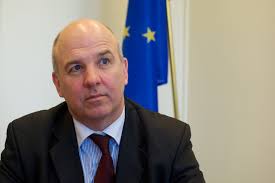EU – Baltic States, Latvia, Society
International Internet Magazine. Baltic States news & analytics
Monday, 23.02.2026, 01:15
Council of Europe Human Rights Commissioner Muiznieks urges Latvia to ensure gender equality and foster inclusive society
 Print version
Print version |
|---|
The commissioner encourages the Latvian authorities to strengthen their efforts to render gender equality effective in reality. There is a need for long-term strategies aimed at applying gender equality across all sectors and at increasing women's participation in public and political life. More efforts are also necessary to raise awareness among civil servants and society as a whole about women's rights and gender equality, Muiznieks points out in the report.
In the commissioner's opinion, violence against women and domestic violence remain a serious problem in Latvia. Although regulations on temporary protection and rehabilitation services for the victims of violence were adopted, there is still a need to ensure that law enforcement, prosecutorial and judicial authorities have the requisite capacity to investigate, prosecute and punish all instances of violence against women. The authorities should also improve the assistance provided to victims of violence, including by establishing a sufficient number of adequately-resourced specialized shelters.
In this context, the commissioner recommends ratifying and promoting the Council of Europe Convention on Preventing and Combating Violence against Women and Domestic Violence which provides mechanisms to progressively change the social norms and practices that reproduce such violence and to ensure that the education system is free of gender bias and stereotypes.
Muiznieks also recommends granting citizenship automatically to stateless children born to non-citizen parents, invigorating the stalled process of de-institutionalization of children and adopting a more inclusive system of education where children with disabilities have access to mainstream schools close to their residence and benefit from support services.
The commissioner stresses the need to put in place educational polices that provide factual information about sexuality and gender diversity. The authorities should develop age-appropriate educational programs, including on sexual and reproductive health and rights, in such a way that they overcome prejudices in society, promote equality between men and women, and address homophobic and transphobic stereotypes.
The protection afforded to LGBTI persons in Latvia's legal system remains fragmentary and is undermined by a lack of public policies designed to promote the human rights of these persons in all spheres of life, notes Muiznieks. The authorities should address these gaps in a systematic manner by designing an action plan in cooperation with the Council of Europe.
The authorities should also improve their responses to homophobic and transphobic crime and hate speech, including by explicitly prohibiting discrimination on grounds of sexual orientation and gender identity, adding homophobia and transphobia to the list of aggravating circumstances in the Criminal Law and improving training for the police, prosecutors and judges to ensure effective investigation, prosecution and punishment of hate crimes and hate speech.
There is also the need to provide legal recognition to cohabiting different-sex and same-sex couples, in line with the jurisprudence of the European Court of Human Rights, adds Muiznieks.








 «The Baltic Course» Is Sold and Stays in Business!
«The Baltic Course» Is Sold and Stays in Business!

